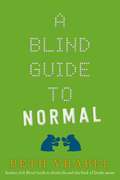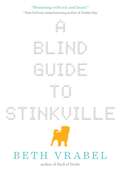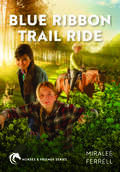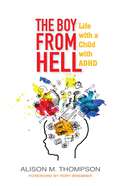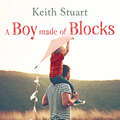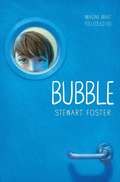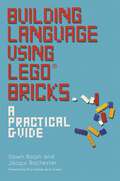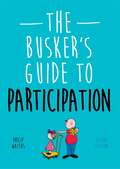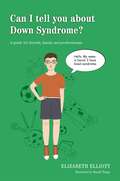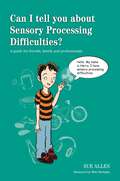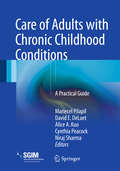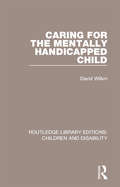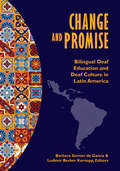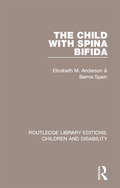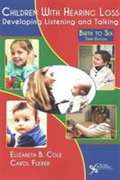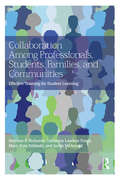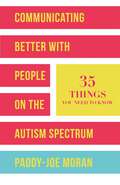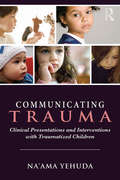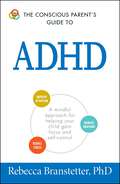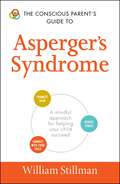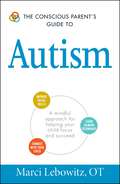- Table View
- List View
A Blind Guide to Normal
by Beth Vrabel<P>Ryder Randolf can find humor in any situation-even in the fact that he is partially blind and has an artificial eye. He's spent the past year making jokes at Addison School for the Blind, earning the respect and friendship of his classmates. Now, he's headed off to a "normal" school for eighth grade. Ryder has gone from being a big fish in a small pond to a strange guppy in a vast ocean, and he struggles to maintain his dignity while everyone at school pities him <P>.Then Ryder makes an enemy in Dean Windham, the most popular guy at school. A situation between the two that could easily be overlooked is made worse by a teacher with good intentions and the fact that Ryder just can't seem to stay away from Dean's girlfriend, Jocelyn. To try to combat the bullying, Ryder listens to his friend Alice's recommendation that he take up karate. While he's pleasantly surprised to find that Jocelyn is an instructor, he's disappointed to learn that Dean is also one. <P>Ryder seeks to dominate the competition in his karate tournament. But he and Dean continue to clash, resulting in Ryder's good eye being injured. Suddenly things aren't so funny anymore. <P>In this exciting sequel to A Blind Guide to Stinkville, Beth Vrabel weaves humor, sadness, and love into a story with characters that have you hooked from page one.
A Blind Guide to Stinkville
by Beth VrabelBefore Stinkville, Alice didn’t think albinism-or the blindness that goes with it-was a big deal. Sure, she uses a magnifier to read books. And a cane keeps her from bruising her hips on tables. Putting on sunscreen and always wearing a hat are just part of life. But life has always been like this for Alice. Until Stinkville.For the first time in her life, Alice feels different-like she’s at a disadvantage. Back in her old neighborhood in Seattle, everyone knew Alice, and Alice knew her way around. In Stinkville, Alice finds herself floundering-she can’t even get to the library on her own. But when her parents start looking into schools for the blind, Alice takes a stand. She’s going to show them-and herself-that blindness is just a part of who she is, not all that she can be. To prove it, Alice enters the Stinkville Success Stories essay contest. No one, not even her new friend Kerica, believes she can scout out her new town’s stories and write the essay by herself. The funny thing is, as Alice confronts her own blindness, everyone else seems to see her for the first time.This is a stirring small-town story that explores many different issues-albinism, blindness, depression, dyslexia, growing old, and more-with a light touch and lots of heart. Beth Vrabel’s characters are complicated and messy, but they come together in a story about the strength of community and friendship. This paperback edition includes a Q&A with the author and a sneak peak at the upcoming The Blind Guide to Normal.Sky Pony Press, with our Good Books, Racehorse and Arcade imprints, is proud to publish a broad range of books for young readers-picture books for small children, chapter books, books for middle grade readers, and novels for young adults. Our list includes bestsellers for children who love to play Minecraft; stories told with LEGO bricks; books that teach lessons about tolerance, patience, and the environment, and much more. While not every title we publish becomes a New York Times bestseller or a national bestseller, we are committed to books on subjects that are sometimes overlooked and to authors whose work might not otherwise find a home.
Blue Ribbon Trail Ride
by Miralee FerrellThirteen-year old Kate and her friends came up with the perfect way to raise money for her autistic younger brother and others to attend summer camp--a horse scavenger hunt! As local businesses donate money and prizes, Kate keeps the entry fees in her mom's antique jewelry box. But when the box and the money disappear, Kate and her friends must unravel the clues, hold on to hope, and solve the mystery along the Blue Ribbon Trail Ride.
The Boy from Hell: Life with a Child with ADHD
by Alison M. Thompson Rory BremnerFor Alison, life with her son Daniel sometimes seemed like an endless round of difficulties: disobedience, backchat, rudeness, name-calling and aggression. Upon starting school, where his aggression and lack of concentration concerned teachers, Daniel was given a vague diagnosis of borderline Attention Deficit Hyperactivity Disorder (ADHD), which was later changed to ADHD with secondary Oppositional Defiant Disorder and autistic traits. In this honest account of the first 18 years of Daniel's life, Alison exposes her own worries, doubts, and exceptional courage at every pivotal turn in Daniel's life. Interspersing the narrative with tips and advice on what she has found useful - or not - in bringing up Daniel, Alison also provides encouraging guidance for teachers and fellow parents. This book also raises serious questions about how the education system supports children with special needs, and if medication can be the answer to managing ADHD in children.
A Boy Made of Blocks: The most uplifting novel of the year
by Keith StuartTHE RICHARD AND JUDY BOOK CLUB 2017 BESTSELLER AND NUMBER ONE AMAZON BESTSELLER'The publishing sensation of the year: a compelling, uplifting and heart-rending debut novel'Mail on SundayA Boy Made of Blocks is a funny, heartwarming story of family and love inspired by the author's own experiences with his son, the perfect latest obsession for fans of The Rosie Project, David Nicholls and Jojo Moyes. A father who rediscovers loveAlex loves his wife Jody, but has forgotten how to show it. He loves his son Sam, but doesn't understand him. He needs a reason to grab his future with both hands.A son who shows him how to liveMeet eight-year-old Sam: beautiful, surprising - and different. To him the world is a frightening mystery. But as his imagination comes to life, his family will be changed . . . for good.*Keith Stuart's magical and moving second novel Days of Wonder is available to pre-order now.*'One of those wonderful books that makes you laugh and cry at the same time'Good Housekeeping'Funny, expertly plotted and written with enormous heart. Readers who enjoyed The Rosie Project will love A Boy Made of Blocks - I did'Graeme Simsion'Very funny, incredibly poignant and full of insight. Awesome.'Jenny Colgan'Heartwarming'The Unmumsy Mum'A wonderful, warm, insightful novel about family, friendship and love'Daily Mail'A great plot, with a rare sense of honesty'Guardian'A truly beautiful story'Heat'A heartwarming and wise story'Cathy Rentzenbrink, author of The Last Act of Love
A Boy Made of Blocks: The most uplifting novel of the year
by Keith Stuart***THE RICHARD AND JUDY BOOK CLUB 2017 BESTSELLER***'The publishing sensation of the year: a compelling, uplifting and heart-rending debut novel'Mail on SundayThe number one Amazon bestseller A Boy Made of Blocks is a moving, funny and heartwarming story of family and love inspired by the author's own experiences with his son, the perfect latest obsession for fans of The Rosie Project, David Nicholls and Jojo Moyes. A father who rediscovers loveAlex loves his wife Jody, but has forgotten how to show it. He loves his son Sam, but doesn't understand him. He needs a reason to grab his future with both hands.A son who shows him how to liveMeet eight-year-old Sam: beautiful, surprising - and different. To him the world is a frightening mystery. But as his imagination comes to life, his family will be changed . . . for good.'One of those wonderful books that makes you laugh and cry at the same time'Good Housekeeping'Funny, expertly plotted and written with enormous heart. Readers who enjoyed The Rosie Project will love A Boy Made of Blocks - I did'Graeme Simsion'Very funny, incredibly poignant and full of insight. Awesome.'Jenny Colgan'Heartwarming'The Unmumsy Mum'A wonderful, warm, insightful novel about family, friendship and love'Daily Mail'A great plot, with a rare sense of honesty'Guardian'A truly beautiful story'Heat'A heartwarming and wise story'Cathy Rentzenbrink, author of The Last Act of Love
The Boys in the Bunkhouse: Servitude and Salvation in the Heartland
by Dan BarryWith this Dickensian tale from America’s heartland, New York Times writer and columnist Dan Barry tells the harrowing yet uplifting story of the exploitation and abuse of a resilient group of men with intellectual disability, and the heroic efforts of those who helped them to find justice and reclaim their lives.In the tiny Iowa farm town of Atalissa, dozens of men, all with intellectual disability and all from Texas, lived in an old schoolhouse. Before dawn each morning, they were bussed to a nearby processing plant, where they eviscerated turkeys in return for food, lodging, and $65 a month. They lived in near servitude for more than thirty years, enduring increasing neglect, exploitation, and physical and emotional abuse—until state social workers, local journalists, and one tenacious labor lawyer helped these men achieve freedom.Drawing on exhaustive interviews, Dan Barry dives deeply into the lives of the men, recording their memories of suffering, loneliness and fleeting joy, as well as the undying hope they maintained despite their traumatic circumstances. Barry explores how a small Iowa town remained oblivious to the plight of these men, analyzes the many causes for such profound and chronic negligence, and lays out the impact of the men’s dramatic court case, which has spurred advocates—including President Obama—to push for just pay and improved working conditions for people living with disabilities.A luminous work of social justice, told with compassion and compelling detail, The Boys in the Bunkhouse is more than just inspired storytelling. It is a clarion call for a vigilance that ensures inclusion and dignity for all.
Bubble
by Stewart FosterWonder meets Mark Haddon in the poignant and uplifting debut novel about superheroes, super-nurses, and the beauty you can find in hope.Eleven-year-old Joe has never had a life outside of the hospital, with its beeping machines and view of London’s rooftops. His condition means he’s not allowed outside, not even for a moment, and his few visitors risk bringing life-threatening germs inside his bubble. Then a new nurse offers Joe the possibility of going outside. But Joe doesn’t know if the nurse is serious—or whether he could survive the adventure. Bubble is the touching story of how Joe spends his days, copes with his loneliness and frustration, and looks—with superhero-style bravery, curiosity, and hope—to a future without limits.
Building Language Using LEGO® Bricks: A Practical Guide
by Georgina Gomez De La Cuesta Dawn Ralph Jacqui RochesterBuilding Language using LEGO® Bricks is a flexible and powerful intervention tool designed to aid children with severe receptive and expressive language disorders, often related to autism and other special educational needs. This practical manual equips you for setting up and adapting your own successful sessions. Downloadable resources enable you to chart progress in the following key areas: - The use of receptive and expressive language - The use and understanding of challenging concepts - Joint attention - Social communication Help children with complex needs to communicate with this unique tool, derived from the highly effective LEGO®-Based Therapy.
The Busker's Guide to Participation, Second Edition
by Philip Waters Chris Bennett"Participation? Of course we do - every Wednesday without fail..." · What is participation? · What's the difference between 'adult-led' and 'child-led' participation? · And do we really need to do it at all? This second edition of The Busker's Guide to Participation sets out to help us understand our values and reasons for undertaking participation with children and young people. It shows us what authentic participation really looks like, helping us to get to grips with the ways we can positively support, interact, engage, include, involve and communicate with children and young people on all levels. Learn how to move away from simply 'doing' participation for participation's sake, and start to see participation as a 'way of being' for the benefit of everyone involved.
Can I tell you about Down Syndrome?: A guide for friends, family and professionals
by Manjit Thapp Elizabeth ElliottMeet David - a boy with Down syndrome. David invites readers to learn about Down syndrome from his perspective, helping them to understand what Down syndrome is and how it affects his daily life. He explains that he sometimes needs extra help at home and school and suggests ways that those around him can help him to feel supported. This illustrated book is ideal for young people aged 7 upwards, as well as parents, friends, teachers, social workers and other professionals working with children with Down syndrome. It is also an excellent starting point for family and classroom discussions.
Can I tell you about Sensory Processing Difficulties?: A guide for friends, family and professionals
by Sue Allen Mike MedagliaMeet Harry - a young boy with sensory processing difficulties. Harry invites readers to learn about why he finds it hard to process sensory information effectively, and how even simple thing such as washing, dressing and coping with meal times can be challenging for him. He also talks about difficulties he faces at school and why large groups and loud noises are especially hard. He explains how other people can have different sensory processing issues and talks about what he and those around him can do to help. This illustrated book is ideally suited for readers aged 7 and upwards and occupational therapists, teachers, parents, family members and friends of those with sensory processing difficulties.
Care of Adults with Chronic Childhood Conditions: A Practical Guide
by David E. Delaet Mariecel Pilapil Alice A. Kuo Cynthia Peacock Niraj SharmaThis book addresses the unique healthcare needs of adults with chronic childhood illnesses. It presents a model of primary and secondary prevention for emerging adulthood--primary prevention in which all young adults are screened for high-risk behaviors and health needs and secondary prevention in which young adults with chronic childhood conditions are optimized through coordinated care, connections to community resources and social/family support. This book is organized in five parts. Part I provides a detailed overview of the health care transition from pediatrics to adult medicine from both a policy and practice perspective. In Part II, the concept of emerging adulthood as a developmental period is explored and strategies for providing improved comprehensive care for this age group are discussed. Part III reviews specific chronic childhood conditions, such as attention-deficit/hyperactivity disorder, autism, cystic fibrosis, and diabetes mellitus, and offers clinical cases and summary reports that can be used as a quick guides to each condition. In Part IV, additional clinical considerations that are not necessarily condition-specific but are highly relevant to the care of young adults with chronic childhood conditions are examined. Part V describes the socio-legal issues involved in caring for this population. Care of Adults with Chronic Childhood Conditions provides primary care providers with a new framework for the care of young adults and identifies opportunities to influence patient health outcomes over a life trajectory.
Caring for the Mentally Handicapped Child (Routledge Library Editions: Children and Disability #12)
by David WilkinFirst published in 1979, this book concerns itself primarily with the mothers of mentally handicapped children. It discusses the problems of assistance that they may have experienced from their families, the community, or the available services. Whilst arguing for far more support for mothers when they are the main carer, this book also suggests reasons why some families are more easily able to cope with the problems of caring for severely handicapped children. <P><P>This study is based on research that was conducted for and funded by the Department of Health and Social Security between 1973 and 1976.
Change and Promise: Bilingual Deaf Education and Deaf Culture in Latin America
by Barbara Gerner Gerner de Garcia Lodenir Becker KarnoppWithin the past few decades, there has been great progress in deaf education in Latin America and growth in the empowerment of their Deaf communities. However, there is little awareness outside that region of these successes. For the first time, this book provides access, in English, to scholarly research in these areas. Written by Latin American Deaf and hearing contributors, Change and Promise provides a counter argument to external, deficit views of the Latin American Deaf community by sharing research and accounts of success in establishing and expanding bilingual deaf education, Deaf activism, Deaf culture, and wider access for deaf children and adults. Change and Promise describes the historical, cultural, and political contexts for providing bilingual deaf education in Latin America. Bilingual deaf education uses students’ sign language, while simultaneously giving them access to and teaching them the majority spoken/written language. This book describes current bilingual deaf education programs in the region that have increased society’s understandings of Deaf culture and sign languages. This cause, as well as others, have been championed by successful social movements including the push for official recognition of Libras, the sign language of Brazil. Change and Promise covers this expanding empowerment of Deaf communities as they fight for bilingual deaf education, sign language rights, and deaf civil rights. Despite the vast political and cultural differences throughout Latin America, an epistemological shift has occurred regarding how Deaf people are treated and their stories narrated, from labeling “deaf as handicapped” to being recognized as a linguistic minority. This panoramic study of these challenges and triumphs will provide an invaluable resource for improving outcomes in deaf education and help to secure the rights of deaf children and adults in all societies.
The Child with Spina Bifida (Routledge Library Editions: Children and Disability #3)
by Elizabeth M. Anderson Bernie SpainFirst published in 1977, this book focuses on the disability of spina bifida in children. Children with the condition frequently suffer with severe physical handicaps such as lower limb paralysis and incontinence, as well as intellectual impairment. It can be difficult for the families of these multiply handicapped children and they often require the help of professionals from many disciplines. In this book, the authors focus on practical suggestions for alleviating many of the problems brought about by the condition. Their suggestions are designed to help parents, as well as professionals.
Children With Hearing Loss: Developing Listening and Talking, Birth to Six (3rd Edition)
by Carol Flexer Elizabeth B. ColeThe third edition of Children With Hearing Loss: Developing Listening and Talking, Birth to Six provides updated information from the previous two editions for both professionals and parents facilitating spoken language through listening (auditory brain access, stimulation, and development) in infants and young children with hearing loss. Also addressed is auditory brain development, audiologic technologies, auditory skill development, spoken language development, as well as family-focused intervention for young children with hearing loss whose parents have chosen to have them learn to listen and talk.
Collaboration Among Professionals, Students, Families, and Communities: Effective Teaming for Student Learning
by Stephen B. Richards Mary-Kate Sableski Jackie M. Arnold Catherine Lawless FrankCollaboration Among Professionals, Students, Families, and Communities provides a foundation for understanding concepts of collaborative learning along with strategies for the application of collaborative skills in teaching. The book moves logically from issues of macro-collaboration (district and school) to micro-collaboration (individual student focus and co-teaching) in K-12 environments before concluding with strategies for family and community collaboration. Significant emphasis is placed on knowledge, skills, and teaching models for pre-service and in-service teachers in general education, special education, and of diverse students including English Learners. Each chapter includes meaningful pedagogical features such as: Learning objectives A case study illustrating the implementation of information presented A case study challenging the reader to apply the information learned in the chapter Study questions for readers in Comprehension Checks at key points in the chapter Highlights of major points in a chapter summary for aid in studying content University, school, and community-based application activities A companion website features additional resources, including PowerPoint presentations, practice tests, suggested video and Internet resources, and advanced application activities.
Communicating Better with People on the Autism Spectrum: 35 Things You Need to Know
by Paddy-Joe MoranCovering verbal and non-verbal communication, Paddy-Joe Moran presents 35 simple tips and strategies to help professionals improve their communication and relationships with individuals on the autism spectrum. The language that professionals choose to use can have a long-term impact on autistic people. This book provides easy-to-implement suggestions to guarantee effective and sensitive communication. It explains everything from person-first language through to the use of specific, rather than open-ended, questions, and a focus on taking the individual's lead with their preferred language and terminology is central to the book.
Communicating Trauma: Clinical Presentations and Interventions with Traumatized Children
by Na'Ama YehudaCommunicating Trauma explores the various aspects of language and communication and how their development can be affected by childhood trauma and overwhelm. Multiple case-study vignettes describe how different kinds of childhood trauma can manifest in children's ability to relate, attend, learn, and communicate. <P><P> These examples offer ways to understand, respond, and support children who are communicating overwhelm. In this book, psychotherapists, speech-language pathologists, social workers, educators, occupational and physical therapists, medical personnel, foster parents, adoption agencies, and other child professionals and caregivers will find information and practical direction for improving connection and behavior, reducing miscommunication, and giving a voice to those who are often our most challenging children.
The Conscious Parent's Guide To ADHD
by Rebecca BranstetterAn integrative method for helping children focus and learn!If your child has been given a diagnosis of ADHD, you may be feeling overwhelmed and unsure of what to do next. With The Conscious Parent's Guide to ADHD, you will learn how to take a relationship-centered approach to parenting that engages your child and ensures that he succeeds behaviorally, socially, and cognitively. Conscious parenting is about being present with your child and taking the time to understand how to help him flourish. By practicing this mindful method, you can support your child emotionally and help nurture his development.With this all-in-one guide, you can create a plan that not only addresses the challenges a child with ADHD faces, but also creates a mindful, less stressful atmosphere for the whole family.You'll be able to:Honor your child's unique learning styleAdapt a conscious parenting philosophy that works for everyoneUnderstand treatment options and weigh the pros and cons of medicationLower stress levels for the entire family, including other siblingsLearn how a mindful approach can be combined with other treatmentsHelp your child focus at home and schoolFocus on your child's strengths as well as weaknessesEncourage your child to achieve his goalsWhen both you and your child are more mindful and relaxed, your child can learn to focus, gain independence, and thrive both in school and out.
The Conscious Parent's Guide To Asperger's Syndrome
by William StillmanA positive, mindful plan for the whole family!If your child has been given a diagnosis of Asperger's syndrome, you may be feeling overwhelmed and unsure of what to do next. With The Conscious Parent's Guide to Asperger's Syndrome, you will learn how to take a relationship-centered approach to parenting that engages your child and ensures that he succeeds behaviorally, socially, and cognitively. Conscious parenting is about being present with your child and taking the time to understand how to help him flourish. By practicing this mindful method, you can support your child emotionally and help nurture his development.This easy-to-use guide helps you to:Honor your child's unique perspective and cognitive strengthsAdapt a conscious parenting philosophy that works for everyoneIdentify triggers that can lead to sensory overloadLower stress levels for the entire family, including other siblingsKeep open communication with your child and help him foster good relationshipsEmbrace your child's passions and help him grow in practical waysEducate your family and friends about Asperger'sAdvocate for your child at schoolWith The Conscious Parent's Guide to Asperger's Syndrome, you'll learn to create a calm and mindful atmosphere for the whole family, while helping your child succeed and thrive.
The Conscious Parent's Guide To Asperger's Syndrome: A Mindful Approach for Helping Your Child Succeed
by William StillmanA positive, mindful plan for the whole family!If your child has been given a diagnosis of Asperger's syndrome, you may be feeling overwhelmed and unsure of what to do next. With The Conscious Parent's Guide to Asperger's Syndrome, you will learn how to take a relationship-centered approach to parenting that engages your child and ensures that he succeeds behaviorally, socially, and cognitively. Conscious parenting is about being present with your child and taking the time to understand how to help him flourish. By practicing this mindful method, you can support your child emotionally and help nurture his development.This easy-to-use guide helps you to:Honor your child's unique perspective and cognitive strengthsAdapt a conscious parenting philosophy that works for everyoneIdentify triggers that can lead to sensory overloadLower stress levels for the entire family, including other siblingsKeep open communication with your child and help him foster good relationshipsEmbrace your child's passions and help him grow in practical waysEducate your family and friends about Asperger'sAdvocate for your child at schoolWith The Conscious Parent's Guide to Asperger's Syndrome, you'll learn to create a calm and mindful atmosphere for the whole family, while helping your child succeed and thrive.
The Conscious Parent's Guide to Autism
by Marci LebowitzHelp your child feel confident and capable!If your child has a diagnosis of "on the autism spectrum," you may be feeling overwhelmed and most likely intimated. Often the focus is on "disabilities" rather than "abilities," and you may be left wondering what you should expect as your child journeys through life. With The Conscious Parent's Guide to Autism, you will learn how to take a relationship-centered approach to engage your child. Conscious parenting means being present with your children and taking the time to understand their point of view. Using this mindful method, you can help your child improve language skills, motor skills, and social skills.You'll also learn how to:Honor your child's unique perspective and cognitive strengthsAdapt a conscious parenting philosophy that works for everyoneIdentify triggers that can lead to sensory overloadHelp your child feel in control with calming routinesLower stress levels for the entire family, including other siblingsEducate your family and friends about autismAdvocate for your childFind ways to improve communicationWith The Conscious Parent's Guide to Autism, you'll learn to create a calm and mindful atmosphere for the whole family, while helping your child succeed and thrive.
The Conscious Parent's Guide to Autism: A Mindful Approach for Helping Your Child Focus and Succeed
by Marci LebowitzHelp your child feel confident and capable!If your child has a diagnosis of "on the autism spectrum," you may be feeling overwhelmed and most likely intimated. Often the focus is on "disabilities" rather than "abilities," and you may be left wondering what you should expect as your child journeys through life. With The Conscious Parent's Guide to Autism, you will learn how to take a relationship-centered approach to engage your child. Conscious parenting means being present with your children and taking the time to understand their point of view. Using this mindful method, you can help your child improve language skills, motor skills, and social skills.You'll also learn how to:Honor your child's unique perspective and cognitive strengthsAdapt a conscious parenting philosophy that works for everyoneIdentify triggers that can lead to sensory overloadHelp your child feel in control with calming routinesLower stress levels for the entire family, including other siblingsEducate your family and friends about autismAdvocate for your childFind ways to improve communicationWith The Conscious Parent's Guide to Autism, you'll learn to create a calm and mindful atmosphere for the whole family, while helping your child succeed and thrive.
